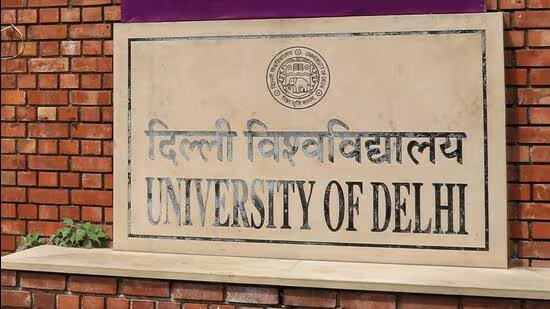
DU Relaxes Rules for Choosing Minor Subjects: What It Means for UG and PG Aspirants
In a student-friendly move, the University of Delhi (DU) has made a significant change making it easier for students to choose a minor discipline without being tied down to specific Generic Elective (GE) papers under Undergraduate Curriculum Framework (UGCF) 2022, This development is particularly relevant for those aiming to pursue postgraduate studies in their chosen minor subject.
The notification, issued on Tuesday, brings more academic flexibility and aligns the undergraduate experience with the evolving postgraduate admissions landscape, especially with the Common University Entrance Test (CUET) now serving as the primary gateway for PG courses.
No More Mandatory GE Papers for Minors
According to the latest circular, students at DU will no longer be required to select particular GE papers to qualify a subject as a minor for PG admissions. This change replaces all previous notifications mandating specific GE choices tied to postgraduate eligibility.
“There shall not be any mandatory requirement for the students to choose any particular general electives to make such discipline a minor for the purpose of seeking admission in the postgraduate programme in that discipline in the university,” the notification reads.
The Old Rule vs The New
Under the original UGCF structure, introduced in 2022, each department provided a preset list of GE papers. Students had to complete a minimum of three department-specified GE papers to be eligible to declare a minor. In addition, they could choose four more GEs from a broader pool, but the minor eligibility strictly depended on the completion of the core three.
This structure was put in place with the intent to ensure that students pursuing postgraduate degrees in a particular subject had sufficient academic exposure and foundational knowledge in the field.
“Each department had its own curated list of GEs, which students were required to follow in order to later pursue that subject at the postgraduate level,” a senior DU official explained. “It helped maintain academic rigour and subject continuity.”
Why the Shift? The CUET Effect
With postgraduate admissions now based on CUET-PG, which evaluates students via a centralised entrance exam, the university found the older rule to be overly restrictive and somewhat redundant.
“Since PG admissions are now entrance-based, students are being tested for their knowledge through CUET, irrespective of what GEs they’ve chosen in their UG years,” the official added. “There’s no longer a need to limit their academic choices based on old internal requirements.”
What Students Can Now Expect
The new regulation allows students to freely choose any GE from the list of available options across departments. Even if the chosen GE doesn’t align directly with the subject they wish to pursue as a minor, it will no longer disqualify them from seeking PG admission in that field.
This gives students the freedom to explore interdisciplinary interests without worrying about how it may impact their postgraduate trajectory. For instance, a student majoring in Political Science can now take GE papers from Environmental Studies, Psychology, or English Literature, and still opt to apply for a Master’s in Political Science — provided they clear CUET-PG.
A Step Towards Flexibility and Inclusion
The change is being welcomed by both students and faculty members, as it promotes curricular flexibility while upholding academic standards through entrance-based evaluation. It also supports the vision of NEP 2020, which encourages student choice, interdisciplinary education, and breaking down rigid academic silos.
Delhi University’s decision to ease the restrictions around minor subject selection under UGCF marks an important step in creating a more inclusive and student-centric academic environment. With CUET-PG now determining admissions, the new rule ensures that students are not penalised for following their academic curiosity during undergraduate studies.
This change is set to make the undergraduate journey at DU not just more flexible, but also more aligned with students’ diverse interests and long-term goals
Also Read: Which IIMs Offer Undergraduate Courses in 2025? Details Explained
Also Read: MHT CET CAP Round 1 Seat Allotment 2025